We hear and read a lot about issues affecting different countries around the world, but many times, despite our concern and interest, we feel like they’re so far away they can’t touch us. So far away we can’t possibly do something to change them.
For me, it took actually learning more about the lives of people from different corners of the planet, in order to take action. It was at an international conference, during a common sharing space about the regions we came from, where I found out what kind of challenges refugees in Africa have to deal with. Understanding that proper support and education are needed in order to slowly reduce these inequalities, I decided I want to know more and do more. With the support of PWC, I was given the opportunity to go on exchange and work on a project supporting refugees in Egypt, Africa.
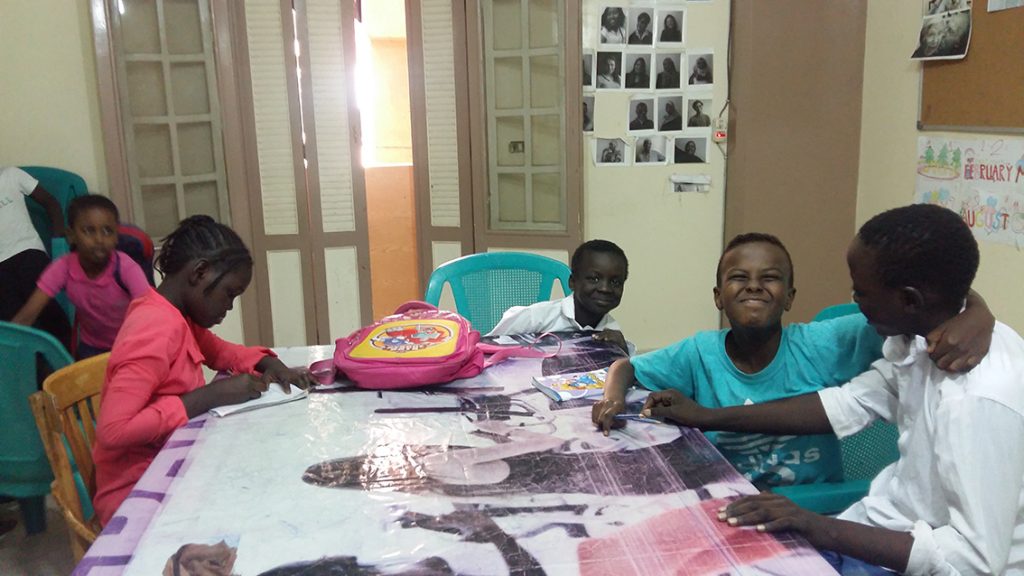
I received many questions before actually leaving for Cairo – would it be dirty, would it be dangerous? Would I feel safe so far away from home? The fears of the ones around me stayed with me for a while, but I decided I would form an opinion by myself and start the journey with arms wide open.
If I were to summarize my experience in Egypt in two words, it would be understanding and exploration. Being out of my comfort zone, being surrounded by a new culture and most importantly, having the opportunity to support a cause I care about, changed the way I thought more than I ever imagined it would.
The project I was part of, Empowering Refugees, focused on contributing to SDG number 10, Reduced Inequalities, by collaborating with an NGO name Tadamon. Over the course of the six weeks I spent in Cairo, I worked with children that came from different countries affected by civil war, where constant danger forced their families to seek help abroad. In our group, most of them came from Sudan.
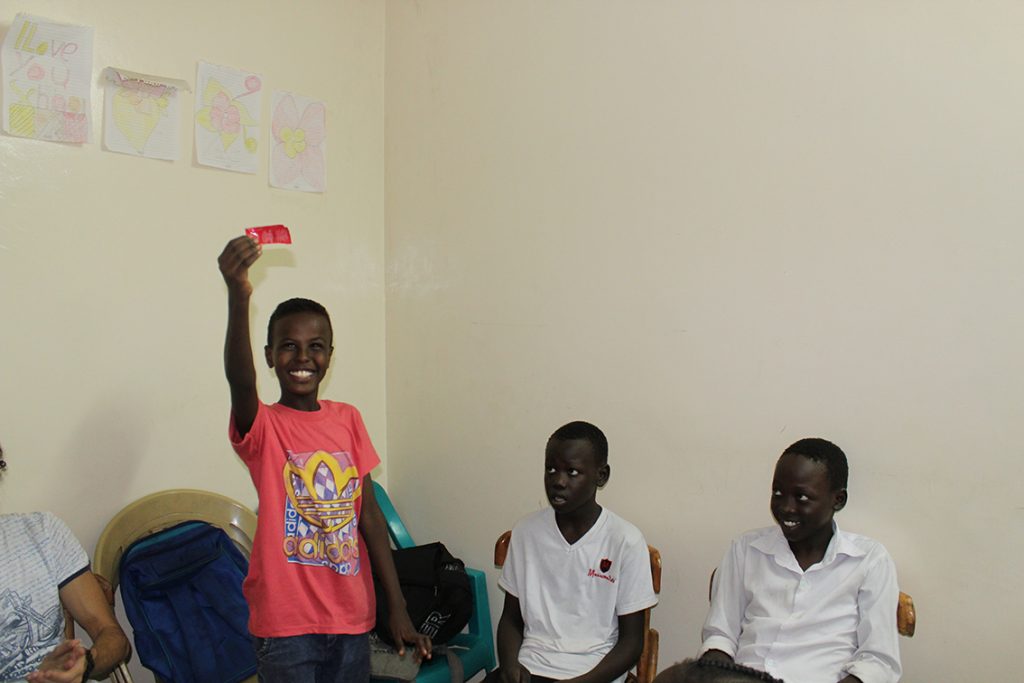
There are currently more than 7000 Sudanese refugees in the capital alone. In an attempt to escape the horrific war that has ravaged the nation for more than 30 years, many people travel to Egypt, and make their way to Cairo, to gain assistance from the United Nations. Although the country kindly opens its borders for the Sudanese to enter, it is unable to provide financial assistance to the refugees, due to its own rapidly growing population. Once in Cairo, it takes years for the UN to investigate and process each claim for refugee status. During this time, they have no access to housing, education, or health care.
The first day we visited the center, my teammate and I fell in love with the kids – they were kind and excited and for them, just having us as teachers made them feel special. Their immediate affection for us, as well as their need for knowledge gave us an overwhelming feeling of responsibility. Although limited in many ways, this community center was their only source of education, the only space where they could interact, learn and be kids again.
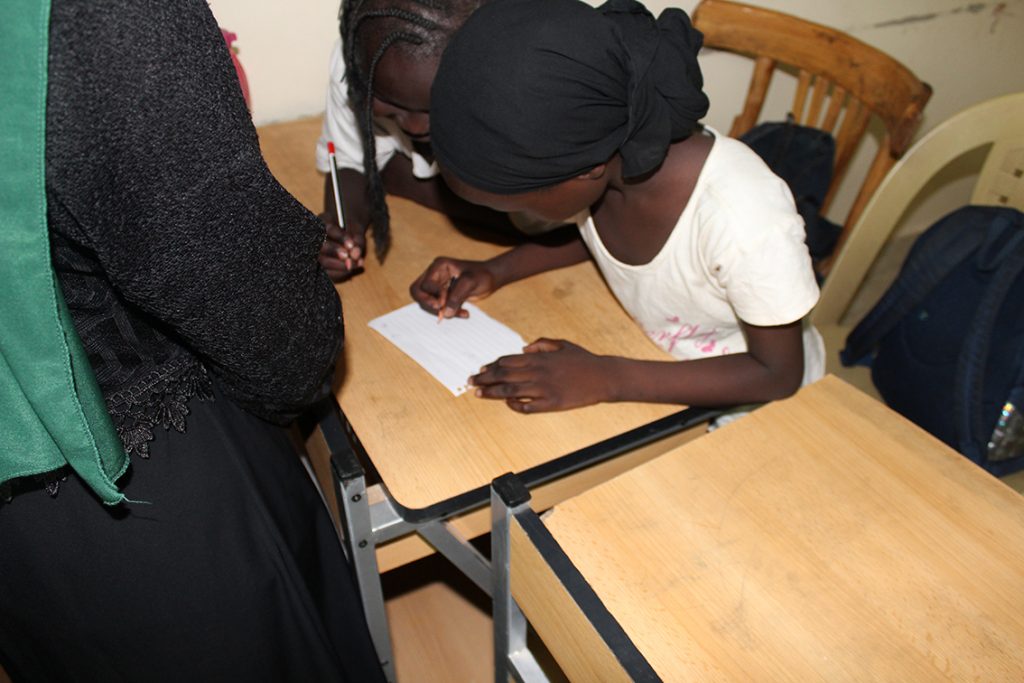
Our main role was to support the children by teaching them a new language, so they could have better opportunities to access education. However, day by day, we realized that we needed to do much more than basic language training. Managing the groups was not always easy and some of the kids presented violent behavior patterns because of what they had went through. We quickly understood that our role was not only to teach English, but offer emotional support and to transform their class into a happy space.
The facilities we had available were not always in best condition. The seats and tables were broken in most of the classes and there was no space outside for the children to play in. Having to move every single day and not having an allocated classroom prevented them from getting a sense of stability. We knew that this was something we needed to change by the end of our experience, so we decided to do something about it.
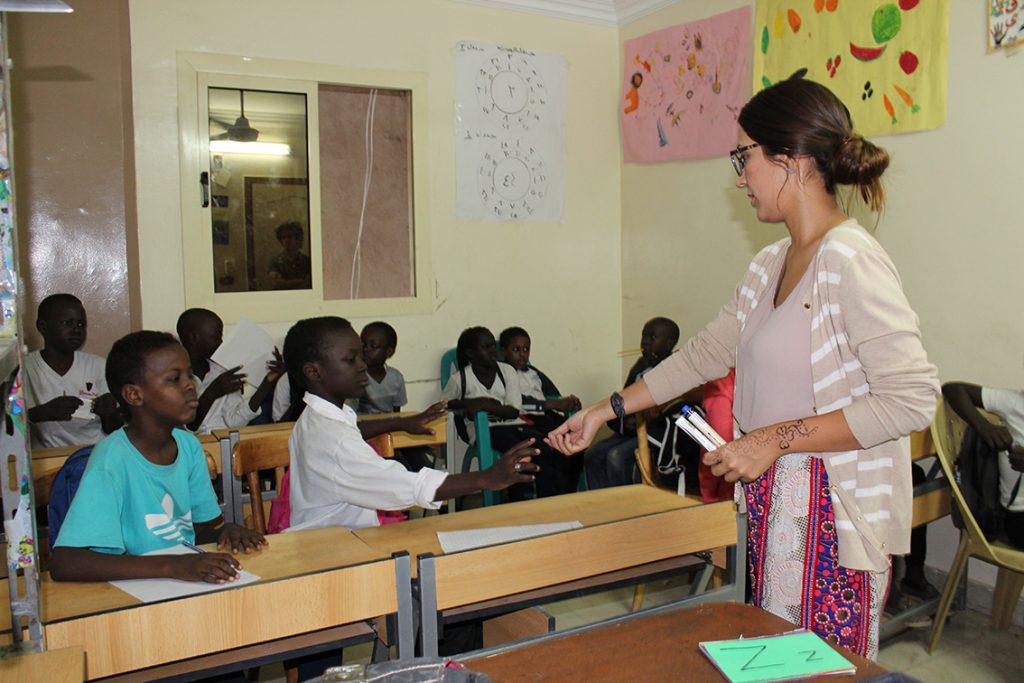
By putting together a group of volunteers that were willing to support us, we managed to adapt the facilities, to make them safer and more child-friendly, while also gathering donations for the refugees. Local and international contributors came together for one single purpose – making the lives of the people in the center a tiny bit better. When we finished, neither the children nor the teachers could believe they had something resembling an actual school to work in. It was a day of finding hope and strength to move on in spite of the many difficulties.
Saying goodbye was not easy. There are few things you can actually do in 6 weeks when the problems are many and resources are lacking, but in the end, we learned that small actions are what’s needed if we want to bring change into our society. Sometimes, we need to see and experience these things for ourselves in order to take responsibility, to start working on solutions that will make a difference.
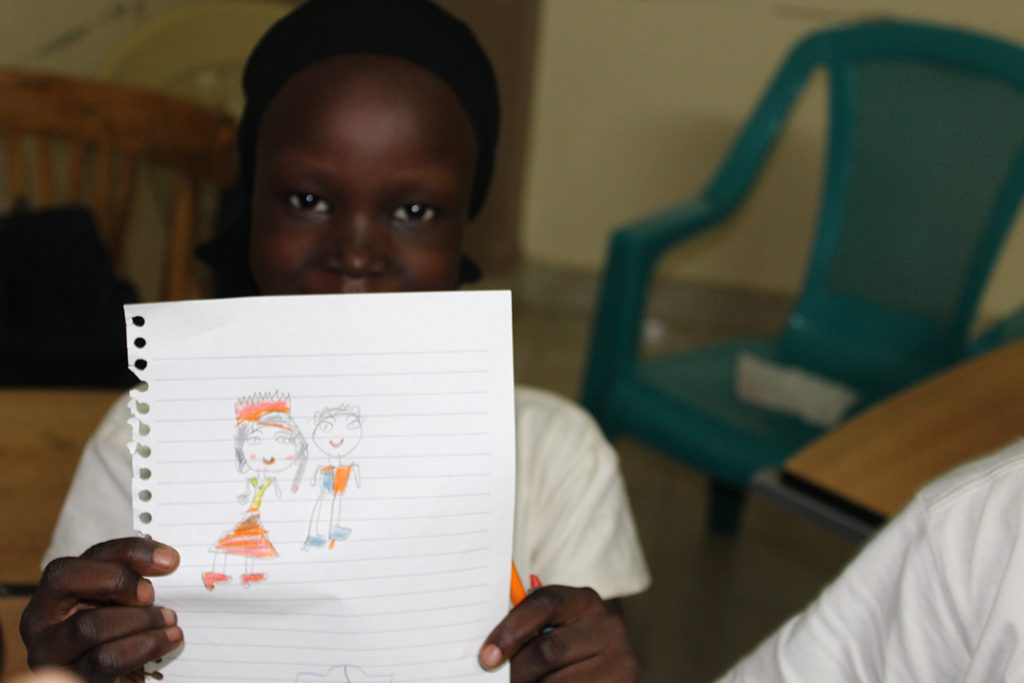
I thought my purpose in Egypt was to give and to teach, but I ended up receiving and learning so much from the children I met. I learned to be grateful, to be hopeful in times of uncertainty, to be happy for the little things and to always stay humble. They taught me that generosity can exist even when you don’t have a lot. In the end, all I can hope for is that I can carry these learnings with me and continue to work for the purpose of making this world a better place.
Leave a Reply